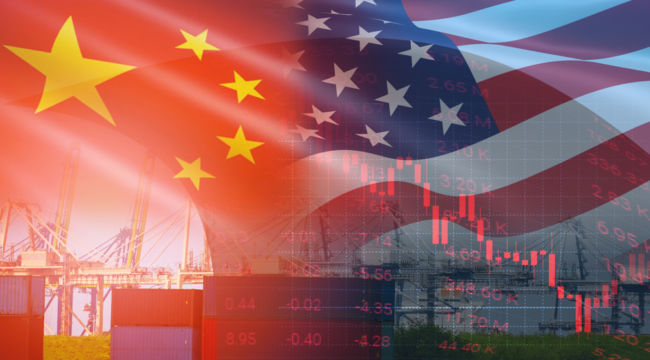
Trade Wars Just Getting Started
Markets are eagerly awaiting the conclusion of the so-called “phase one” trade deal between the U.S. and China.
Both parties are trying to reach a mini-deal involving simple tariff reductions and a truce on new tariffs along with Chinese purchases of pork and soybeans from the U.S.
The likely success or failure of the mini-deal has been a main driver of stock market action for the past year. When the deal looks likely, markets rally. When the deal looks shaky, markets fall.
A deal is still possible. But investors should be prepared for a shocking fall in stock market valuations if it does not. Markets have fully discounted a successful phase one, so there’s not much upside if it happens.
On the other hand, if phase one falls apart stock markets will hit an air pocket and fall 5% or more in a matter of days.
But even if the phase one deal goes through, it does not end the trade wars. Unresolved issues include tariffs, subsidies, theft of intellectual property, forced transfer of technology, closed markets, unfair competition, cyber-espionage and more.
Most of the issues will not be resolved quickly, if ever.
Resolution involves intrusion into internal Chinese affairs both in the form of legal changes and enforcement mechanisms to ensure China lives up to its commitments.
These legal and enforcement mechanisms are needed because China has lied about and reneged on its trade commitments for the past 25 years. There’s no reason to believe China will be any more honest this time around without verification and enforcement. But China refuses to allow this kind of intrusion into their sovereignty.
For the Chinese, the U.S. approach recalls the Opium Wars (1839–1860) and the “Unequal Treaty” (1848–1950) whereby foreign powers (the U.K., the U.S., Japan, France, Germany and Russia) forced China into humiliating concessions of land, port access, tariffs and extraterritorial immunity.
…click on the above link to read the rest of the article…